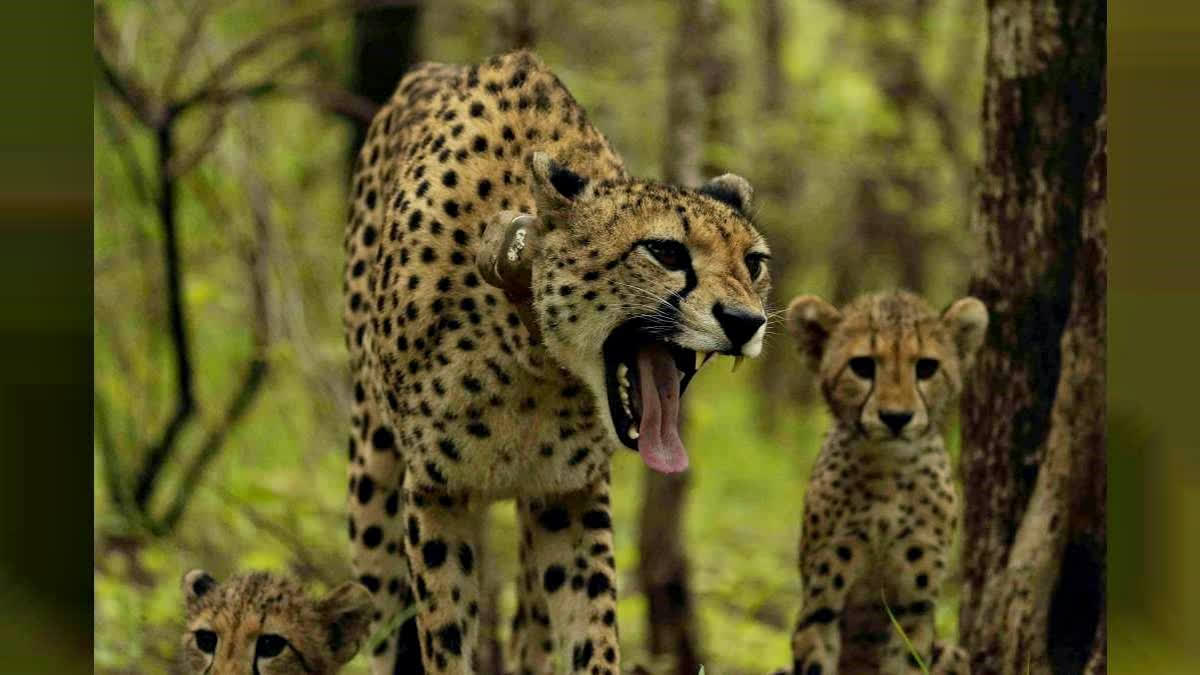Sheopur: Five more cheetahs will be released into the open forest of Kuno National Park, increasing the total number of cheetahs in the wild to 12. This marks another milestone in Madhya Pradesh's ongoing cheetah reintroduction project, which aims to restore the species to its historical habitats in India.
The cheetahs, which were previously housed in a large enclosure at Kuno National Park, will now be freed to roam the park's vast expanse. Among the five cheetahs being released on Friday is female cheetah Jwala, who was brought from Namibia, along with her two male cubs, and two female cubs. This release is expected to enhance the visitor experience for tourists, as they will now be able to spot more cheetahs across the park, especially in the Khajuri tourism area, where the animals will be primarily released.
CM Mohan Yadav, who has been instrumental in the cheetah reintroduction efforts, shared the news with the public via his official social media page. In his post, CM Yadav highlighted the significance of this development, saying, "Another big step towards cheetah breeding in Kuno National Park. A female cheetah, Jwala, was brought to Kuno from Namibia, and her four cubs will be released in the open forest under the Khajuri tourism area today. This will bring the total number of cheetahs roaming freely in the park to 12, significantly enhancing the tourism experience and biodiversity of the region."
The release follows the earlier successful reintroduction of five cheetahs, including two females, Dhira and Asha, and their three cubs, on February 5. With these additional cheetahs, the park now houses a total of 12 cheetahs. This marks an important step in India's ambitious cheetah reintroduction program, which aims to reintroduce the species after it was declared extinct in the 1950s.
Experts, however, have raised concerns regarding the challenges these cheetahs may face in adapting to their new environment. Wildlife expert Ajay Dubey pointed out that the cheetahs born in captivity have been influenced by human intervention, which could impact their ability to survive and hunt in the wild.
"Cheetahs born in captivity often have weaker immunity and are less adept at hunting, as they have been fed by humans," Dubey said. He emphasised that it might take time for the cheetahs to adjust to their new surroundings and learn to hunt for themselves.
The cheetahs released into the wild will have to adapt to hunting their prey in the forest, which is a significant shift from their previous conditions where food was provided by park staff. Their primary prey in the park includes small deer and four-horned antelopes. Experts closely monitor the situation to ensure the Cheetah's successful transition to the wild.
In addition to the cheetah releases, there have been concerns over cheetahs straying into nearby residential areas. Officials have issued an advisory for the local community, urging them to remain calm and take precautionary measures. The advisory emphasised that cheetahs do not pose a threat to humans, advising villagers to maintain a safe distance and protect small children and livestock.
Kuno Wildlife Division Forest Officer R Thirukkural reassured residents, saying that the forest department is actively monitoring the situation and urged people to contact officials if they encounter a cheetah near their homes. "If a cheetah is seen, give it space and it will move away on its own. In case of an attack on livestock, villagers should try to drive the cheetah away with loud noises. If any livestock is killed, compensation is available through the nearest forest officer," Thirukkural said.
